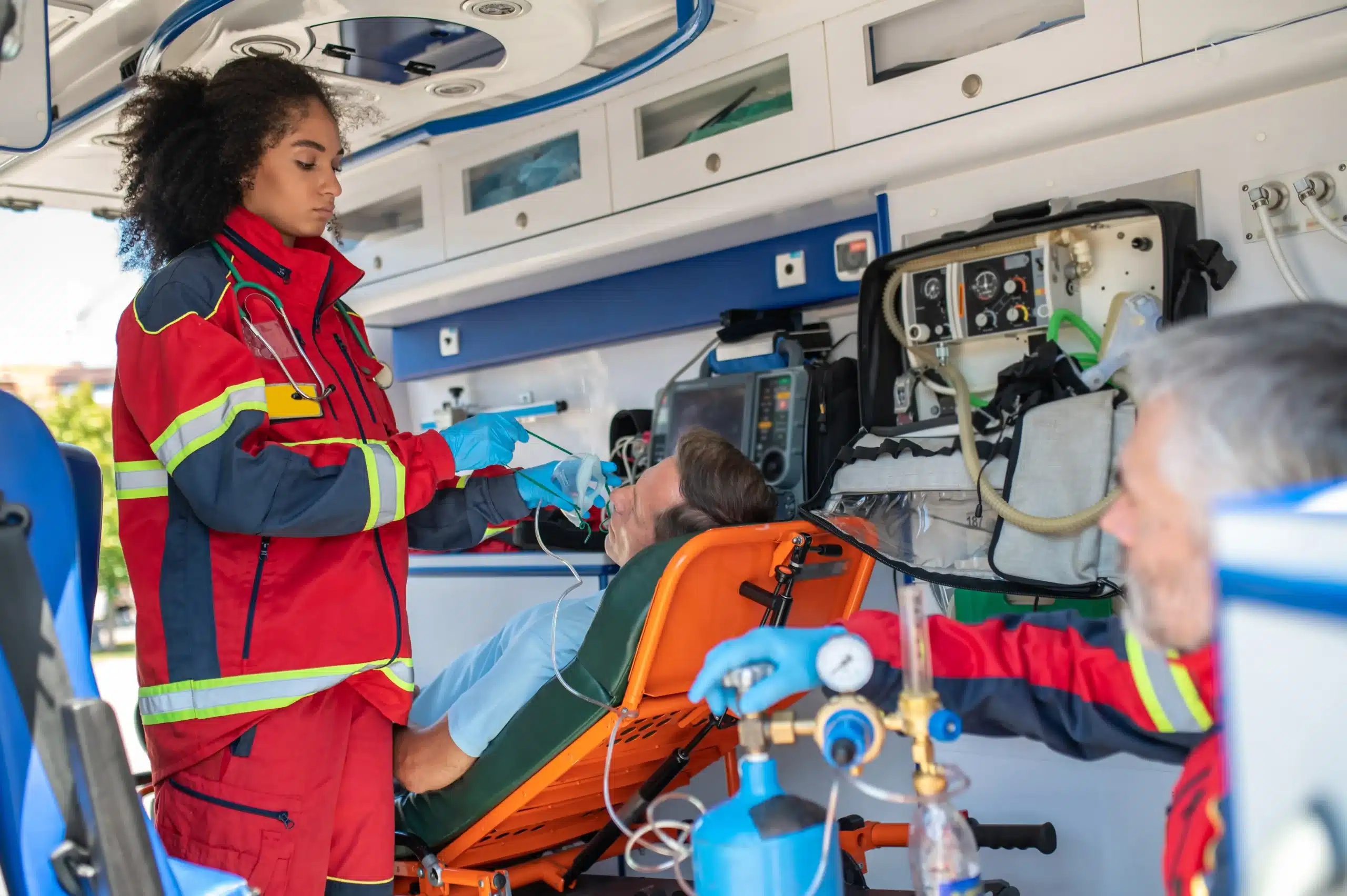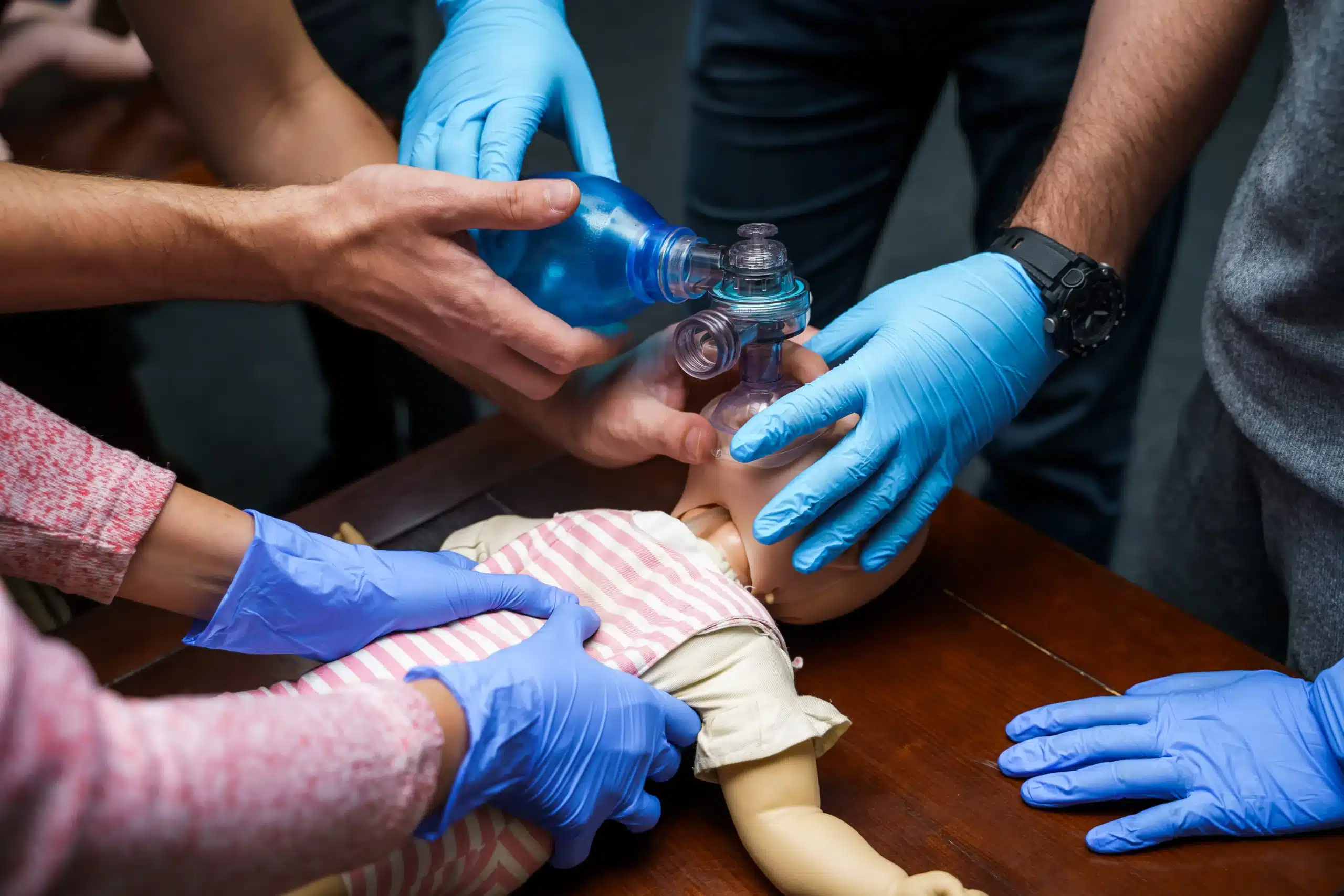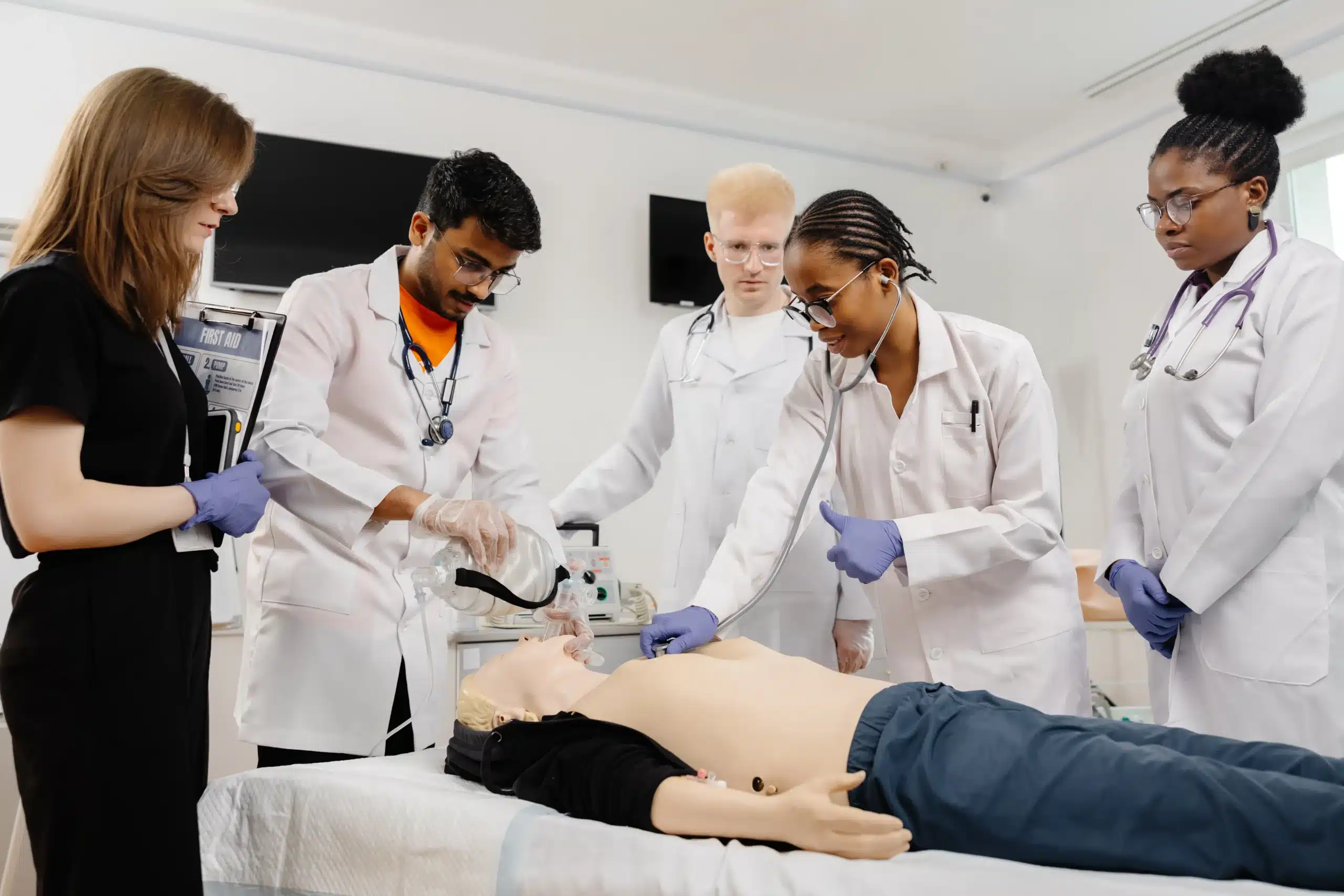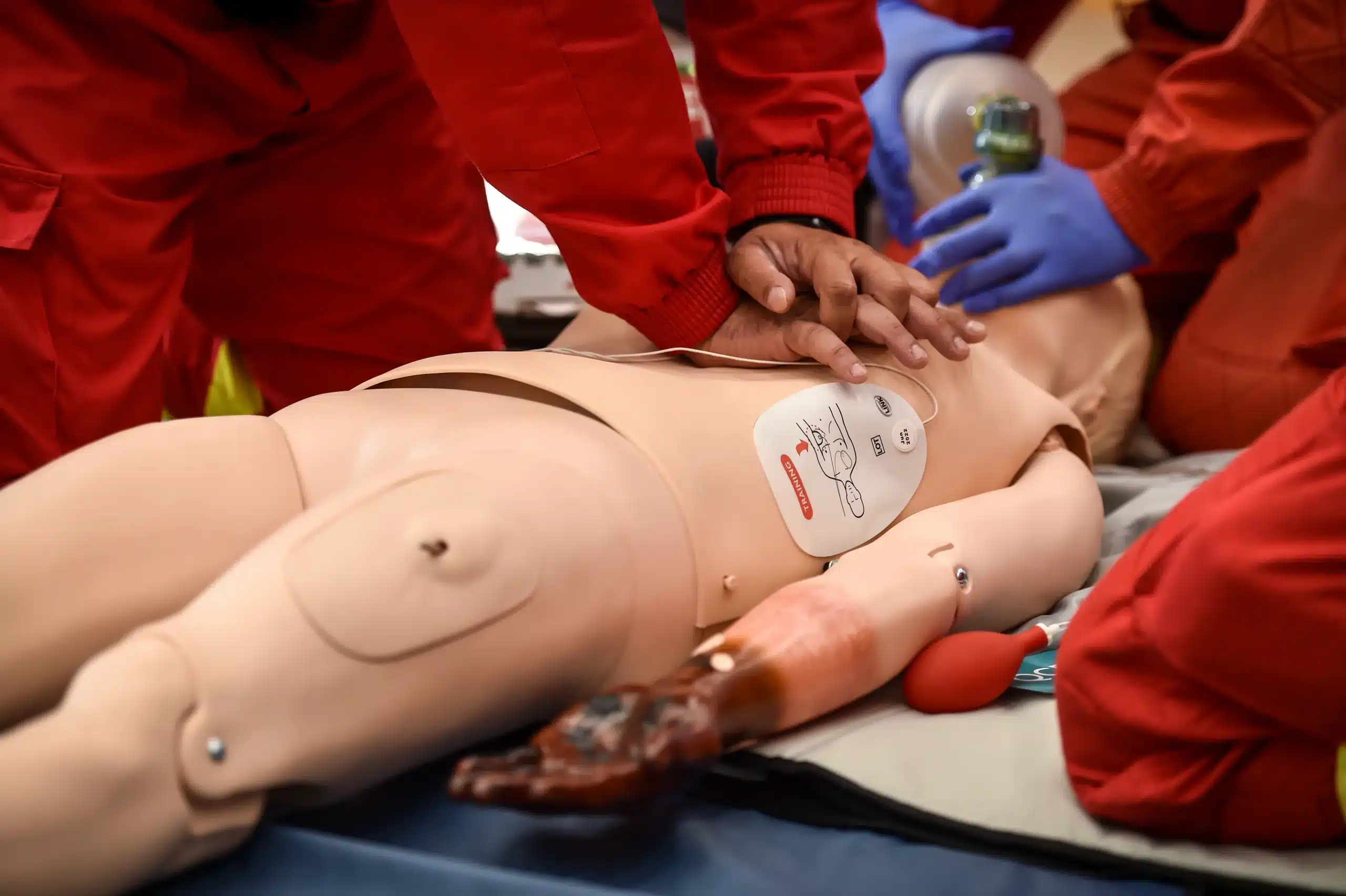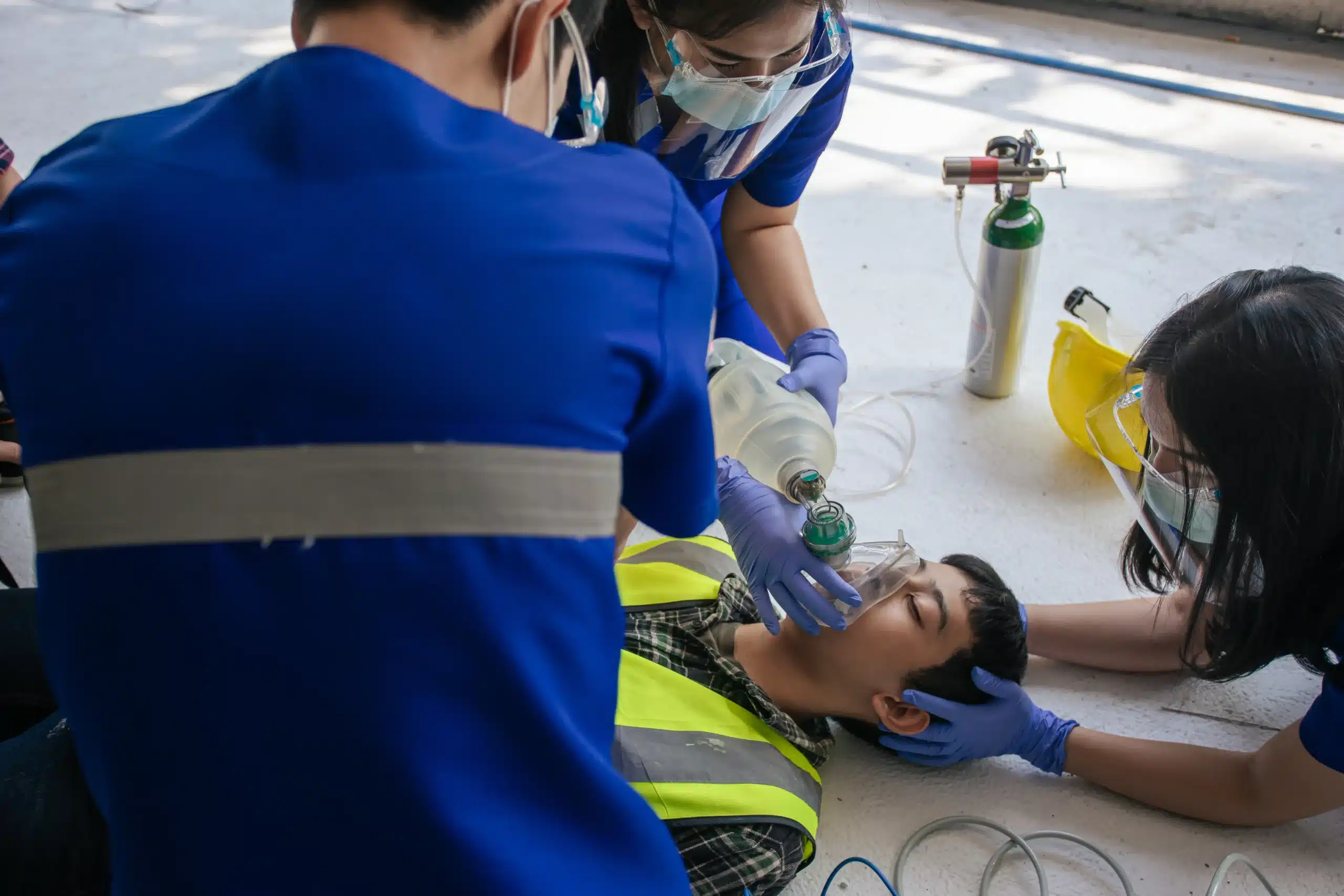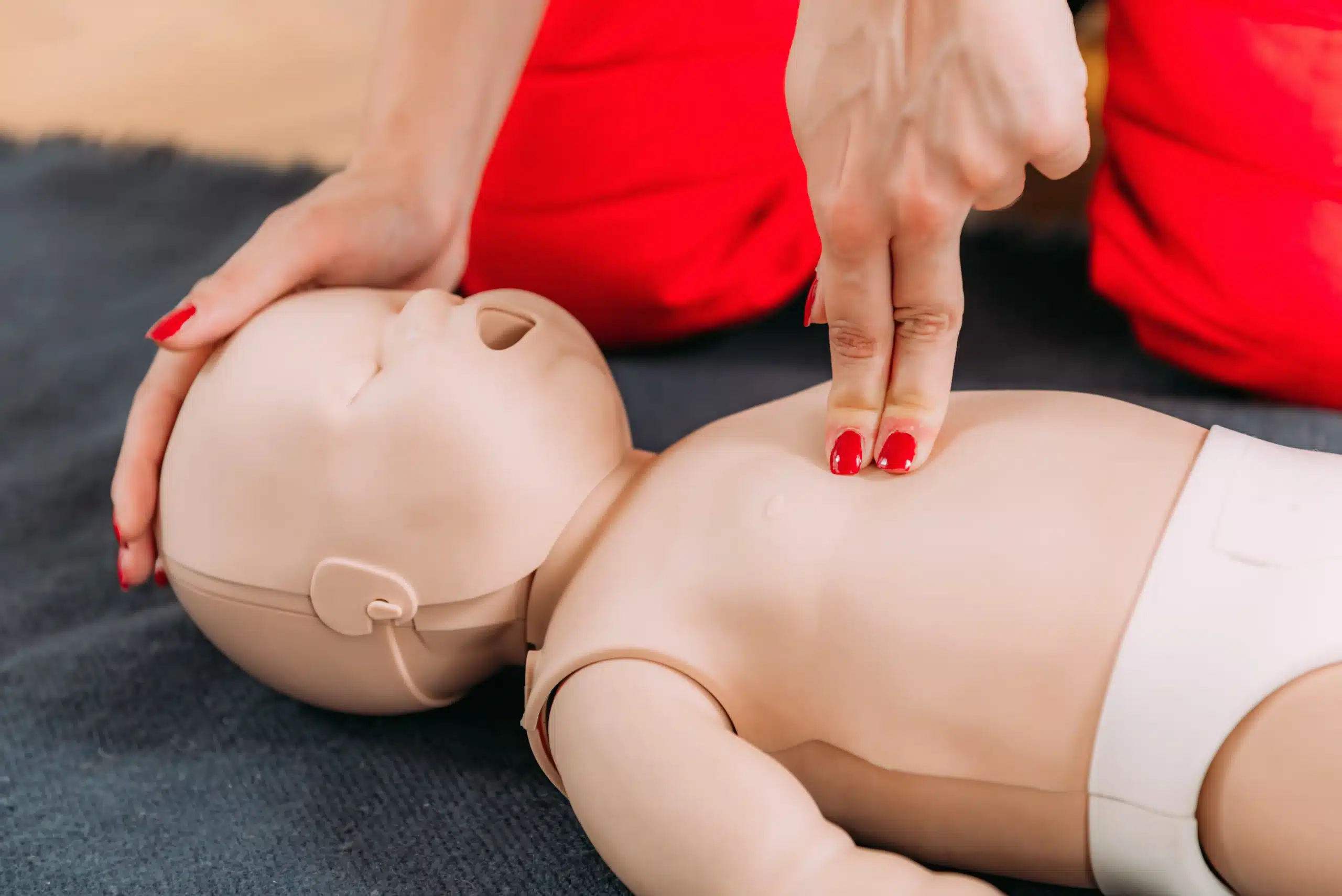In the fast-paced world of San Francisco healthcare, finding time for professional development can be tough. But staying current with life-saving certifications like ACLS is non-negotiable. HeartCode ACLS offers a solution: blended learning that combines online coursework with a streamlined in-person skills session. This article is your comprehensive guide to ACLS Heartcode in SF, covering everything from course content and costs to the benefits of this flexible approach and how to find the right training center for you. Whether you’re a seasoned healthcare professional or just starting your career, learn how HeartCode ACLS can empower you to provide exceptional patient care.
Key Takeaways
- HeartCode ACLS provides a flexible learning experience: The online modules allow you to study anytime, anywhere, making it easier to fit training into your busy schedule.
- Blended learning combines online convenience with hands-on practice: You’ll gain a thorough understanding of ACLS principles through interactive online modules and demonstrate your skills in a focused in-person session.
- HeartCode ACLS equips you with essential life-saving skills: The course covers a wide range of topics, from basic life support to managing complex cardiac emergencies, preparing you to confidently handle critical situations.
What is HeartCode ACLS?
HeartCode ACLS is the American Heart Association’s (AHA) blended learning course for Advanced Cardiovascular Life Support certification. It combines online coursework with a required in-person skills practice session, giving healthcare professionals a flexible way to learn these essential life-saving skills. This format lets you work through the theoretical material at your own speed before demonstrating your skills in a hands-on setting.
Blended Learning Explained
The blended learning approach makes HeartCode ACLS ideal for busy professionals. It allows you to complete the online modules whenever and wherever it fits your schedule. This self-paced learning removes the pressure of traditional classroom settings, letting you absorb the material at a comfortable rate. Once you finish the online portion, you’ll schedule a separate in-person skills session to complete your ACLS certification. This combination of online learning and hands-on practice ensures you develop a comprehensive understanding of ACLS principles and techniques.
Key Components
The HeartCode ACLS course provides access to the ACLS Provider Manual eBook, a crucial resource throughout your training. The curriculum covers a wide range of topics, from Basic Life Support (BLS) and primary and secondary assessments to effective team dynamics and the management of various cardiac emergencies. This comprehensive approach prepares you to confidently handle critical situations and provide effective patient care. You can find more details about the program on the AHA website.
HeartCode ACLS vs. Traditional ACLS
Choosing the right ACLS course format is a big decision. Let’s break down the key differences between HeartCode ACLS and traditional ACLS to help you find the best fit.
Flexibility and Self-Pacing
HeartCode ACLS offers a significant advantage for busy professionals: flexibility. The online portion allows you to learn at your own speed, pausing, rewinding, and reviewing material as needed. This self-paced approach contrasts with traditional ACLS courses, which follow a fixed schedule. This means you can fit your training around your work and personal commitments, studying whenever and wherever it’s convenient. The American Heart Association’s HeartCode program makes this blended learning approach possible.
Time and Cost Savings
While both HeartCode ACLS and traditional courses cover the same material and lead to the same certification, HeartCode can be more efficient. The online portion typically takes less time than a traditional classroom setting, and the in-person skills session is streamlined. This blended format can also translate to cost savings, as you’ll spend less time away from work. Safety Training Seminars offers HeartCode ACLS, and their website details the time commitment and associated costs for their courses in San Francisco.
Personalized Learning
HeartCode ACLS provides a more personalized learning experience. The online modules adapt to your progress, offering additional practice in areas where you might need it. This focus helps you master essential skills and concepts. The AHA’s HeartCode ACLS course is designed with this personalized learning in mind, ensuring you get the most out of your training. This approach can lead to better knowledge retention and improved confidence when applying your ACLS skills.
How HeartCode ACLS Works
HeartCode ACLS is a blended learning program, combining online coursework with an in-person skills session. This approach offers flexibility and a structured learning experience. Let’s break down each component:
Online Coursework
The HeartCode ACLS online portion lets you learn at your own speed, fitting the training around your schedule. You’ll work through interactive modules, case studies, and simulations covering essential ACLS algorithms and protocols. This part of the course includes access to the ACLS Provider Manual eBook, ensuring you have the most current information based on the 2020 Guidelines for CPR and ECC. You’ll also find self-assessment tools to check your understanding as you move through the material.
In-Person Skills Session
After completing the online coursework, you’ll move on to a hands-on skills session held in person. This crucial step allows you to demonstrate your proficiency in essential ACLS interventions. You’ll practice on mannequins and work with instructors to refine your technique and receive real-time feedback. It’s important to find an AHA Training Center for this portion, and remember, the online coursework must be finished before attending the in-person skills testing. Safety Training Seminars offers these in-person skills sessions in San Francisco.
Time Commitment
One of the advantages of HeartCode ACLS is its efficiency. The online portion typically requires around three to four hours to complete, which you can do from the comfort of your home. The in-person skills session adds another 30 to 40 minutes. This blended format allows you to acquire comprehensive ACLS training without a significant time commitment.
HeartCode ACLS Costs in San Francisco
Understanding the costs associated with your ACLS certification is an important part of your planning. Let’s break down the typical expenses for HeartCode ACLS in San Francisco.
Initial Certification Price
In San Francisco, initial ACLS certification through the blended learning HeartCode format typically costs around $290. This price generally covers the online portion, the required in-person skills session, and your AHA certification card, which you’ll receive upon successful completion of both components. The online portion usually takes about 3-4 hours to complete, and you can work through it at your own pace from home. Many training centers offer convenient scheduling for the skills session, often allowing you to complete it on the same day as your online work. You can find ACLS courses in San Francisco at Safety Training Seminars.
Renewal Costs
Your ACLS certification is valid for two years. After this period, you’ll need to renew your certification to stay current with the latest guidelines and maintain your credentials. Renewal pricing varies, so it’s best to check with your chosen training center for their current rates. Safety Training Seminars offers various renewal courses.
Additional Fees
It’s helpful to understand how the overall cost breaks down. The online portion of the HeartCode ACLS course usually costs around $168, which is paid directly to the American Heart Association when you register for the online portion. The in-person skills test, conducted at an approved training center, typically costs an additional $90. Be sure to confirm these fees with your chosen provider, as prices can vary. You can often find competitive pricing and a low-price guarantee at training centers like Bay Area CPR.
Find and Register for HeartCode ACLS in San Francisco
Finding the right HeartCode ACLS course in San Francisco means understanding the training centers and their registration processes. Here’s a look at some options:
Safety Training Seminars
Safety Training Seminars offers various American Heart Association (AHA) courses, including BLS, ACLS, and PALS, emphasizing affordability and convenient scheduling. While their website doesn’t specifically mention HeartCode ACLS, it’s worth reviewing their course calendar for blended learning options or contacting them to ask about availability. They’re known for competitive pricing and great customer service.
UCSF Kanbar Center
The UCSF Kanbar Center provides AHA courses, including BLS, PALS, and ACLS, primarily for UCSF affiliates (students, staff, and faculty). As an AHA Training Center, they might offer HeartCode ACLS. Visit the Kanbar Center website for course details and registration information.
Bay Area CPR
Bay Area CPR offers AHA’s BLS CPR training, including the HeartCode BLS blended learning format. While their site focuses on HeartCode BLS, they may also offer HeartCode ACLS. Contact them to confirm availability and discuss their ACLS training.
HeartStart CPR
HeartStart CPR provides AHA ACLS training and certification in the Bay Area. They recommend their ACLS course for healthcare professionals responding to cardiovascular emergencies. Contact them to determine if they offer the HeartCode format and to discuss registration.
Register Online
After choosing a training center, you’ll likely register for the online portion of HeartCode ACLS through the American Heart Association website. This usually involves a fee, payable to the AHA during registration. After completing the online modules, you’ll schedule the in-person skills session with your training center.
Benefits of HeartCode ACLS in San Francisco
HeartCode ACLS offers several advantages, especially for busy professionals in San Francisco. Let’s explore some key benefits:
Convenience for Busy Professionals
Juggling work, family, and other commitments makes it tough to find time for professional development. HeartCode ACLS provides a flexible way to renew or obtain your ACLS certification without sacrificing your busy schedule. The online portion allows you to learn at your own pace, anytime, anywhere. This blended learning approach fits perfectly into the lives of San Francisco professionals. You can complete online modules during your commute, lunch break, or even after work, making certification more manageable.
Up-to-Date Content
Staying current with the latest advancements in Advanced Cardiovascular Life Support is critical. HeartCode ACLS courses use the most recent guidelines and recommendations from the American Heart Association, ensuring you learn the best practices for patient care. For example, the 2023 update includes new recommendations on extracorporeal cardiopulmonary resuscitation (ECPR) for specific patients.
Improved Retention
HeartCode ACLS uses interactive simulations and scenarios to reinforce learning and improve knowledge retention. These realistic scenarios help you apply your knowledge in a safe environment, building confidence and competence. Practicing ACLS interventions in simulated emergencies better prepares you to handle real-life situations. This hands-on practice, combined with the online coursework, leads to better understanding and retention of essential ACLS skills.
Prepare for Your HeartCode ACLS Course
Getting ready for your HeartCode ACLS course involves two parts: the online portion and the in-person skills session. Here’s how to make the most of both.
Maximize Online Learning
HeartCode ACLS is a blended learning program from the American Heart Association that combines online learning with hands-on practice. The online portion lets you learn at your own pace and covers important topics like BLS, assessments, team dynamics, and managing cardiac emergencies. You’ll also have access to the ACLS Provider Manual eBook, a helpful resource you can use even after you finish the course. Take your time with the material, review important concepts, and use the online modules to really understand the information.
Get Ready for the Skills Session
After you finish the online portion, it’s time to get ready for the in-person skills session. This typically takes about five to six hours and involves showing your skills in a simulated environment. Training centers like the UCSF Kanbar Center will have their own schedules and requirements, so be sure to check with them. Remember, you must complete the online coursework before attending the in-person session.
Overcome Challenges
The skills session tests your ability to use what you’ve learned online. It’s designed to feel like real-life scenarios, so expect some challenges. Common hurdles include making quick decisions, adapting to changing situations, and communicating effectively within a team. Practicing with simulated scenarios is key to connecting theory and practice. Review the algorithms, practice your skills, and be ready to work with your instructors and classmates. This hands-on experience is incredibly valuable for building confidence and skill in ACLS.
Maintain Your ACLS Certification
Keeping your ACLS certification current is essential for providing the best possible patient care. This section covers everything you need to know about renewal requirements and continuing education.
Renewal Requirements
ACLS certification is valid for two years. To maintain your credentials, recertify before your current certification expires. The American Heart Association (AHA) no longer differentiates between initial and renewal courses for ACLS, which simplifies the process. Whether you’re renewing or getting certified for the first time, the process is similar. Staying current with the latest guidelines and practices is crucial for any healthcare professional providing advanced cardiac life support. Recertification ensures you’re up-to-date on best practices and new findings in emergency cardiovascular care.
Continuing Education
Continuing education is key to maintaining your ACLS certification and advancing your skills. The AHA offers various continuing education credits for healthcare professionals, allowing you to expand your knowledge and meet licensing requirements. These credits are available for Registered Nurses and Emergency Medical Services personnel, among others. Continuing education courses cover a range of topics relevant to ACLS, ensuring you stay informed about advancements in emergency care. Staying dedicated to ongoing learning not only benefits your career but also enhances the quality of care you provide to patients.
Technology and Innovation in ACLS
Technology plays a crucial role in modern ACLS training, making it more engaging, effective, and accessible. From virtual simulations to personalized learning platforms, these advancements are transforming how healthcare professionals prepare for real-life emergencies.
Virtual Simulations and Apps
High-fidelity simulations are now integral to ACLS training. These virtual simulations offer a safe environment to practice managing complex cardiac emergencies, replicating the stress and time constraints of real-world scenarios. Cascade Training Solutions’ discussion of simulated scenarios highlights how these tools bridge the gap between theory and practice, building confidence and competence in handling critical situations. Many providers also use apps for quick refreshers on algorithms and drug dosages, making this knowledge readily accessible.
Team-Based Scenarios
ACLS interventions often involve a team of healthcare professionals working together, making effective communication and coordination essential for successful patient outcomes. Real-life ACLS stories emphasize the importance of clear communication, defined roles, and strong leadership during these high-pressure situations. Training now incorporates team-based scenarios, allowing participants to practice these crucial teamwork skills in a controlled environment and improving a team’s ability to function cohesively during actual emergencies.
Personalized Learning
Recognizing that every healthcare provider has unique learning needs, ACLS training is evolving to incorporate personalized learning approaches. This might involve adaptive learning software that adjusts based on individual performance or providing various learning resources, such as videos and interactive modules. Mastering emergency responses requires understanding individual patient needs and tailoring interventions accordingly. Personalized learning helps providers develop the critical thinking skills necessary to adapt their approach in diverse clinical situations.
Healthcare Provider Feedback
Feedback from healthcare providers consistently highlights the value of ACLS training, particularly its impact on patient care, skill retention, and team dynamics.
Impact on Patients
Healthcare providers trained in Advanced Cardiovascular Life Support (ACLS) see firsthand its impact on patients. Effective ACLS intervention contributes to improved survival rates and reduces morbidity for patients experiencing cardiac emergencies, ultimately leading to a better quality of life for those who receive timely and appropriate care. This is especially critical in a busy city like San Francisco, where access to high-quality emergency care is essential. For more information on ACLS certification, visit Safety Training Seminars.
Skill Retention and Confidence
ACLS courses use hands-on practice and realistic simulations. These training scenarios replicate the challenges healthcare professionals might face in real-life emergencies, allowing them to hone their skills in a safe environment. Providers report increased confidence in managing complex situations, making quick decisions under pressure, and performing life-saving interventions. Simulated scenarios further reinforce this learning and improve skill retention.
Team Dynamics in Real-Life Situations
ACLS training also emphasizes teamwork and communication. Effective communication within a resuscitation team is crucial during emergencies. Providers learn to work together, communicate vital information clearly, and coordinate their efforts to provide optimal patient care. The American Heart Association offers a PDF on effective communication in ACLS scenarios. ACLS training also encourages personalized approaches to patient care. Healthcare professionals learn to tailor interventions based on individual patient needs. Real-life stories about ACLS skills evaluations demonstrate the value of this personalized approach.
Related Articles
- ACLS Certification & Renewal Courses – San Francisco CPR Classes
- AHA PALS Certification Course in San Francisco – San Francisco CPR Classes
- BLS Courses San Francisco: Your Complete Guide – San Francisco CPR Classes
- CPR, BLS, ACLS, PALS Certification Courses in San Francisco, CA
- CPR Training in San Francisco: Your Complete Guide – San Francisco CPR Classes
Frequently Asked Questions
What exactly does “blended learning” mean in the context of HeartCode ACLS? HeartCode ACLS blended learning combines online self-paced modules with a shorter, in-person skills practice session. You learn the material online at your convenience and then demonstrate your skills to an instructor. It’s the best of both worlds – flexible online learning and the essential hands-on practice.
How does HeartCode ACLS differ from a traditional ACLS course? The main difference is the flexibility. HeartCode ACLS lets you complete the coursework online at your own pace, while traditional courses follow a fixed classroom schedule. Both result in the same AHA certification, but HeartCode often takes less overall time.
What costs should I expect for HeartCode ACLS certification in San Francisco? Expect to pay around $290 total for initial HeartCode ACLS certification in San Francisco. This usually includes the online portion (around $168) and the in-person skills session (around $90). Always confirm pricing with your chosen training center, as costs can vary.
Where can I find HeartCode ACLS courses in San Francisco? Several training centers in San Francisco offer ACLS certification. Check with Safety Training Seminars, UCSF Kanbar Center, Bay Area CPR, and HeartStart CPR to see if they offer the HeartCode format. You can also search online for “HeartCode ACLS San Francisco” to find additional providers.
How can I prepare for the in-person skills session after completing the online HeartCode ACLS modules? Review the key algorithms and procedures covered in the online portion. Practice your skills if possible, and come prepared to actively participate in the hands-on session. The instructors will guide you, but familiarizing yourself with the material beforehand will boost your confidence.


